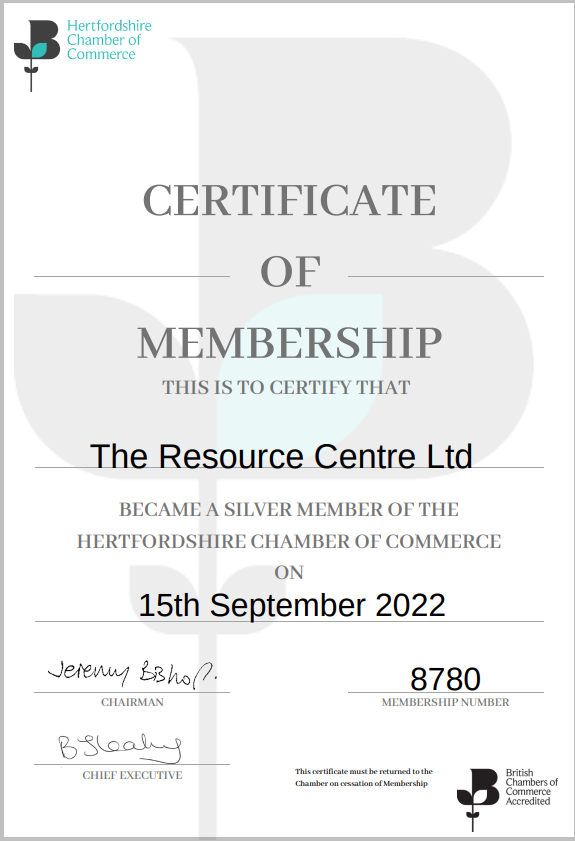
‘No’ is a complete sentence.

I’m sure at some point in all of our careers we have struggled to say ‘no’. No to taking on that extra shift, no to taking on a few extra responsibilities, no to a social engagement that might just stretch our already depleted energy levels.
Do you feel that you need a reason to say no? That you should craft an elaborate excuse as to why you can’t give up your free time to do something you probably don’t really want to do? In fact, you are saying no. You are saying no to yourself. No to spending an evening with friends or family, no to reading your book, finishing that show, or no to just doing whatever you want.
Assertiveness training gives you an opportunity to learn the skills to say no (or yes in the right situation) and enables you to be confident to practice saying no without the nagging feeling of guilt of letting down the team, your manager, or your colleagues.
But here’s the bit we don’t talk about. How do you respond to hearing the word ‘no’? Employers, line managers, where is your training? Do you have the skills to hear the word no and not react emotionally? It’s not all about getting the most hours/work out of your staff anymore, it’s about creating an environment of empowerment that allows your employees or line reports to be honest and set their boundaries and have them be respected. It’s not easy to hear no. But it’s harder to say it. Don’t always ask the person who says yes. The person who maybe doesn’t have children, just because they’re more likely to say yes. Don’t leave your request until the last minute, give people time to respond. And above all, be prepared to hear no. Please be kind and don’t ask why not.
‘No’ is a complete sentence.
Say ‘No’ to Summer stress

This is one ‘No’ that doesn’t need justifying!
Do you remember the days when you looked forward to summer? Six weeks holiday, beach breaks, lay-ins, BBQ’s and not to mention burning in the sun because ‘we just aren’t used to this kind of weather.’ Those childhood days may seem a million miles away from your office desk right now but here are ways to hike up your productivity and renew your love for summer again.
Plan your play!
You’ve heard the quote ‘work hard, play harder.’ It sounds desirable but with a busy schedule, it may seem impossible to have the time out that you need.
Arrange a date to ‘get away’ which doesn’t interfere with upcoming events. You don’t want to leave in the middle of a big project and then spend your hard-earned holiday stressing about it!
Get organised before you go!
Now, it’s a week before you’re due to finally get quality time out of the office. You know that but does your boss remember? Reminding your boss more than once about your holiday may feel like you’re a broken record, but bosses are busy and might need to be reminded in order to put things into place for the time that you are away.
You’re never really on holiday with a smartphone! Force of habit finds us checking our phones and let’s face it, it’s impossible to check just one email as before you know it, hours have passed!
Relax! Limit your contact and avoid spending your holiday working! Tell your colleagues when you’re going away so that they can deal with enquiries on your behalf.
Back to work
So, your holiday may be over but that doesn’t mean summer is over just yet. The office will be the same as when you left; hot!
Studies prove that movement reduces stress and increases concentration.
Be kind to yourself in the first week back. Make sure to take our lunch breaks, and if possible, take them outside. Remember to leave work at a reasonable time so you don’t lose the benefit of your holiday during your first week back!
Clearing your mind during work hours will keep you proactive. You don’t have to sit cross-legged on the office floor or listen to chants, just simply moving away from your computer screen will help you stay mentally fresh!
Prioritise and set goals. Decide on a few things you want to achieve before the week is out so you finish feeling positive and have a sense of achievement.
Is telemarketing dead?

Most B2B businesses have had it tough over the past two and a half years and some might say that it’s not going to get much easier due to the cost-of-living crisis, soaring energy prices, and living in a post-pandemic world.
So, today, every business needs as much help as it can get.
We will all have to manage costs carefully but, in order to grow and not just stand still, or, even worse, stagnate, marketing activities need to continue.
There are many benefits from telemarketing, especially if you outsource it.
Telemarketing specialists have a wealth of experience, motivation and persistence as they actually enjoy doing what they do – probably unlike you or I!
What are the benefits of outsourcing your telemarketing activities?
- Staff are experienced so minimal training is required
- You are not paying salaries, NI, pension, holidays or sickness
- You are not paying for equipment or any calls made
- You are not paying a manager to supervise, train or motivate telemarketers
In an automated world, telemarketing is an individual direct marketing approach that provides a human touch. Telemarketing offers prospects the opportunity to ask questions and the telemarketer to gain more information and data.
In today’s business world there is a place for all aspects of marketing and telemarketing complements social media and the internet.
Telemarketing creates a genuine sales pipeline built on conversations, forming professional relationships between your company, and the prospect.
Telemarketing can never die!
Don’t Forget Your Data
All businesses need accurate data, especially about actual or potential customers, in order to develop marketing strategies.
However, the data you hold about people, especially the people you’re trying to convert into customers, is far more strictly policed now than it was just a year ago. So how do you make sure you have the data you need without falling foul of GDPR?
Why Might Your Data Be Out of Date?
The business world you move in isn’t a static one. Micro-businesses come and go: perhaps the owner gets interested in something different, and starts a new business, or maybe they conclude that running a business isn’t for them. In a larger company, people come and go — perhaps including your contacts.
This may mean that the email or phone number you have no longer exists, or that the person on the other end doesn’t know who you are — so you have to start again from scratch. Or it may mean that you’re trying to market to someone who no longer needs your services. All a waste of time and money.
Keeping Your Data Up to Date
Even if you have a sophisticated database, such as a CRM system, it’s not enough to leave it just sitting there. You can do a number of things to make sure you have the latest data.
You can ask people for as many points of contact as possible, whether alternative phone numbers and emails or social media links. It helps if they get something back for taking the trouble of providing this — a voucher, perhaps, or a piece of advice exclusive to these people.
Removing bad data can go hand in hand with reaching out to your contacts on a regular basis. Either giving people a call once a month or sending out a newsletter reminds them that you’re there, as well as identifying dead connections that can be removed.
Are You Being Legal?
GDPR isn’t really scary, but it is the law and has to be followed. The two most important things to bear in mind are that you have to be able to tell anyone what data you’re keeping about them (and be able to delete it, if they ask you to) and that you can only send them marketing communication with their explicit consent.
The main downside of GDPR is that following its requirements can be time-consuming. On the other hand, you can outsource keeping your data up to date and GDPR compliant. You’re very welcome to get in touch with us if you’d be interested in how we could help you.
Keep Your Body and Your Business Healthy in Winter
By this stage of the winter, most of us have already had at least one cold. And your business isn’t that much different. It’s not just distractions like Christmas and the tax return deadline. Both you and your customers may have the winter blues and not be motivated to try anything adventurous.
Look After Yourself
It’s easy just to accept colds, flu and other bugs as a fact of life in a British winter. To some extent they are, but you can protect yourself. After all, if you’re ill for most of the winter, you’ll be able neither to enjoy your life or run your business effectively.
Having the flu jab doesn’t guarantee to protect you against all forms of flu, but it certainly helps. Otherwise, you can build up resistance to bugs by healthy living throughout the year.
Exercise is vital, and so is a healthy diet — and this means eating the right food, not necessarily less. In particular, ensure you get the full recommended intake of all vitamins, whether from your diet or from supplements.
Look After Your Business
Just as your body needs care and nurturing, so does your business. This is especially important in a period of downturn, whether for personal or economic reasons. Once momentum has been lost, it’s hard to recover it.
This means working hard to motivate your employees, your customers — and yourself, of course. Perhaps you could brainstorm with your staff to come up with new approaches and innovations they can feel invested in. It’s important, too, to give everybody (including yourself) targets that are challenging but achievable. And rewards are also important, both for your staff and yourself. They don’t need to be substantial — receiving a reward is more important than what it is.
Be sure to engage your customers as well, with new and exciting marketing, both for new prospects and old faithfuls. Your aim is to energise people who may be marking time till they feel more dynamic into enthusiasm about what you’re offering.
It’s Not Just for Winter
Just as staying healthy for winter involves working at it all year round, keeping your business healthy needs input twelve months a year. This includes the good times, when you’re getting as much work in as you can handle. It’s important not to take your foot off the pedal then, as your business may suffer for it a few months down the line.
Why not have a chat with us to see how we can help you reach out to new clients? Whatever season it might be.


